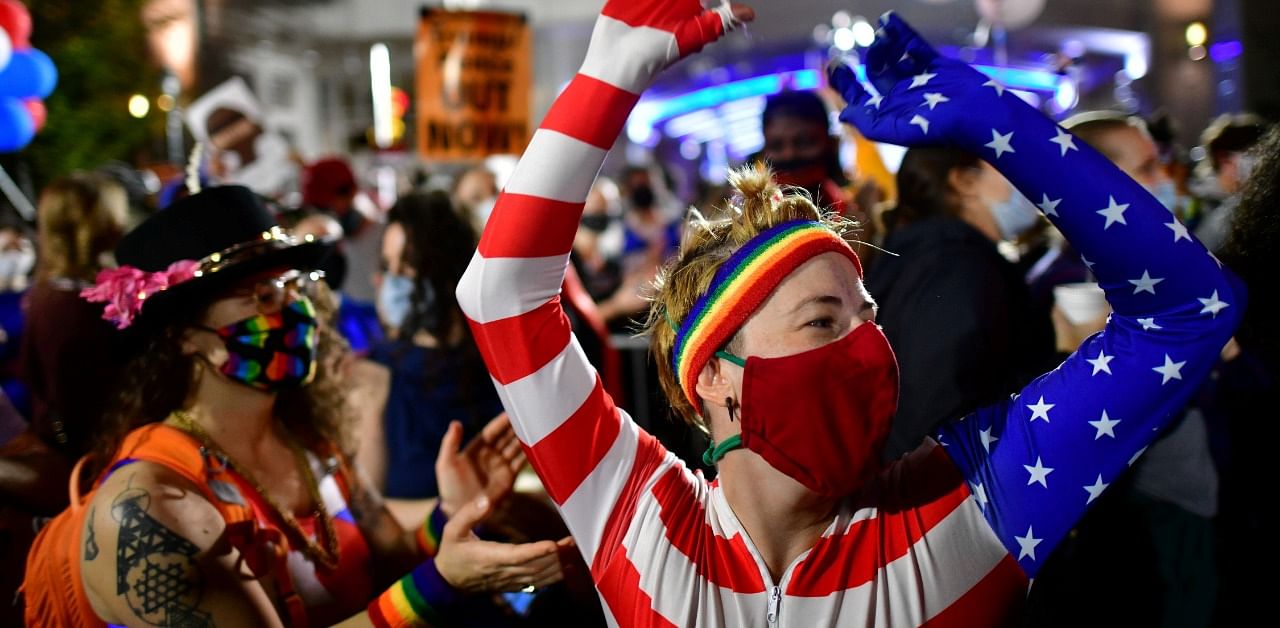
On Friday, a viral claim that Pennsylvania had 21,000 dead people on its voter rolls spread across the internet. In some versions of the rumour, those deceased people had voted for the Democratic presidential candidate, Joe Biden.
Breitbart News, the right-wing publication, wrote an article about it. Others then cited it as evidence that Democrats were trying to steal the election.
Rudy Giuliani, President Donald Trump’s personal lawyer, shared the article on Twitter, collecting 74,800 likes and shares. Diamond and Silk, the popular pro-Trump social media duo, posted about the rumour on Facebook. And Rep. Matt Gaetz, R-Fla., tweeted: “The dead vote appears to have swung overwhelmingly for Joe Biden.”
Altogether, Facebook posts about the rumour reached up to 11.3 million people, according to an analysis by The New York Times.
The problem: It wasn’t true that 21,000 dead people had voted in Pennsylvania.
The claim stemmed from a lawsuit that was amended on Thursday, an action that fueled the rumour’s spread on Friday. The conservative Public Interest Legal Foundation had filed the lawsuit against Pennsylvania’s secretary of state, Kathy Boockvar, on October 15 in the US District Court for the Middle District of Pennsylvania.
The suit accuses Boockvar, a Democrat, of improperly including 21,206 supposedly deceased Pennsylvanians on voter rolls. The group asked for an injunction to stop the dead people from voting in the election.
On October 20, the court’s chief judge, John E. Jones III, who has the case, said he was doubtful of the suit. He noted in a ruling that the Public Interest Legal Foundation was asking the court to accept its findings that dead people were on the voter rolls but said, “We cannot and will not take plaintiff’s word for it — in an election where every vote matters, we will not disenfranchise potentially eligible voters based solely upon the allegations of a private foundation.”
Logan Churchwell, a spokesman for the legal foundation, said in an email on Friday it had evidence from the 2016 and 2018 elections for its suit. “Evidence and exhibits are filed under seal with the court,” he said. “The lawsuit is not a rumour, and the methodology is explained in the amended complaint, filed yesterday.”
A spokeswoman for the Pennsylvania attorney general’s office said: “The court found no deficiency in how Pennsylvania maintains its voter rolls. There is currently no proof provided that any deceased person has voted in the 2020 election.”
Boockvar’s office did not respond to a request for comment.
Dead people whose identities were used to vote appear to be a popular subject for those who are spreading unsubstantiated claims of fraud about the election. Assertions that the dead had voted in Michigan also surfaced on Twitter and other social media this week. But The New York Times found that the Michigan voters were alive and had voted legally and that in some cases their birth dates had shown up inaccurately because of clerical errors.